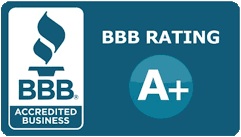Credit Pitfalls After Bankruptcy
Some Credit Pitfalls After Bankruptcy
It is important to start working on rebuilding your credit after bankruptcy. The following are some pitfalls to avoid.
“Disguised” Reaffirmation Agreement
Carefully read any credit card or other credit offer from a company that claims to represent a lender you listed in your bankruptcy, or who own a debt you discharged. This may be from a debt collection company that is trying to trick you into reaffirming a debt. The fine print of the credit offer or agreement will likely say that you will get new credit, but only if some or all of the balance from the discharged debt is added to the new account.
“Secured” Credit Card
Another type of credit marketed to recent bankruptcy filers as a good way to reestablish credit involves “secured” credit cards. These are cards where the balances are secured by a bank deposit. The card allows you a credit limit up to the amount you have on deposit in a particular bank account. If you can’t make the payments, you lose the money in the account. These kind of cards may be useful to establish that you can make regular monthly payments on a credit card after you have had trouble in the past. But, since almost everyone now gets unsecured credit card offers, even after previous financial problems, there is less reason to consider allowing a creditor to use your bank deposits as collateral. It is preferable not to tie up your bank account.
Credit Repair Companies
Beware of companies that claim “We can erase bad credit”. These companies rarely offer valuable services for what they charge, and are often an outright scam. The truth is that no one can erase bad credit information from your report if it is accurate. If there is old or inaccurate information on your credit report, you can correct it yourself for free.
Avoid High Cost Predatory Lenders
Don’t assume that because you filed bankruptcy you will have to get credit with the worst terms. If you can’t get credit on decent terms right after bankruptcy, it may be better to wait. Most lenders will not hold the bankruptcy against you, if after a few years, you can show that you have avoided problems and can manage your debts.
Be wary of auto dealers, mortgage brokers and lenders who advertise “Bankruptcy filing? Bad Credit? No Credit? No Problem!” They may give you a loan after bankruptcy, but at a very high cost. The extra costs and fees on these loans can make it impossible for you to keep up the loan payments. Getting this kind of loan can ruin your chances to rebuild your credit.
Mortgage Loans
If you own your home, some home improvement contractors, loan brokers and mortgage lenders may offer to give you a home equity loan despite your credit history. These loans can be very costly and can lead to serious financial problems and even the loss of your home. Avoid mortgage lenders that:
- Charge excessive interest rates, points, brokers’ fees and other closing costs;
- Require that you refinance your current lower interest mortgage or pay off other debts;
- Add on unnecessary and costly products, like credit insurance;
- Make false claims of low monthly payments based on a “teaser” variable interest rate;
- Include a “balloon” payment term that requires you to pay all or most of the loan amount in a lump sum as the last payment;
- Charge a prepayment penalty if you pay off the loan early;
- Change the terms at closing;
- Make false promises that the rate will be reduced later if you make timely payments;
- Pressure you to keep refinancing the loan for no good reason once you get it.
Small Loans
It is always best to save some money to cover unexpected expenses so you can avoid borrowing. But if you are in need of a small loan, avoid the following high cost loans:
Payday loans
Some “check cashers” and finance companies offer to take a personal check from you and hold it without cashing it for one or two weeks. In return, they will give you an amount of cash that is less than the amount of your check. The difference between the amount of your check and the cash you get back in return is interest that the lender is charging you. These payday loans are very costly. For example, if you write a $256 check and the lender gives you $200 back as a loan for two weeks, the $56 you pay equals a 728% interest rate! And if you don’t have the money to cover the check, the lender will either sue you or try to get you to write another check in a larger amount. If you choose to write another check, the lender gets more money from you and you get further into debt.
Auto Title Loans, Rent-to-own,Tax Refund Anticipation Loans
For many years, pawn shops have made small high-interest loans in exchange for property. A new type of “pawn” is being made by title lenders who will give you a small loan at very high-interest rates (from 200% to 800%) if you let them hold your car title as collateral for the loan. If you fall behind on the payments, the lender can repossess your car and sells it.
By renting a TV, furniture or appliance from a rent-to-own company, you will often pay three or four times more than what it would cost to buy. The company may make even more profit on you because the item you are buying may be previously used and returned. And if you miss a payment, the company may repossess the item leaving with you no credit for the payments you made.
Some tax return preparers offer to provide an “instant” tax refund by arranging for loans based on the expected refund. The loan is for a very short period of time between when the return is filed and when you when you would expect to get your refund. Like other short-term loans, the fees may seem small but amount to an annual interest rate of 200% or more. It is best to patient and wait for the refund.
What You Can Do to Avoid Problems
If you don’t need it, don’t get it. If you have doubts about whether you really need the loan or service, or whether you can afford it, don’t let yourself get talked into it by a salesperson using high-pressure tactics. You can always walk away from a bad deal, even at the last minute.
Shop around. You may qualify for a loan with normal rates from a reputable bank or credit union. Don’t forget that high-cost lenders are counting on your belief that you cannot get credit on better terms elsewhere. Do not let feelings of embarrassment about your past problems stop you from shopping around for the best credit terms.
Compare credit terms. Do not consider just the monthly payment. Compare the interest rate by looking at the “annual percentage rate”, as this takes into account other fees and finance charges added on the loan. Make sure you know exactly what fees are being charged for credit and why.
Read before you sign. If you have questions, get help from a qualified professional to review the paperwork. A lender that will not let you get outside help should not be trusted.
If you give a lender a mortgage in a refinancing deal, remember your cancellation rights. In home mortgage refinancing, federal law gives you a right to cancel for three days after you sign the papers. Exercise these rights if you feel if you signed loan papers and got a bad deal. Don’t let the lender talk you out of canceling.
Get help early. If you begin to have financial problems, or you are thinking of consolidating.


